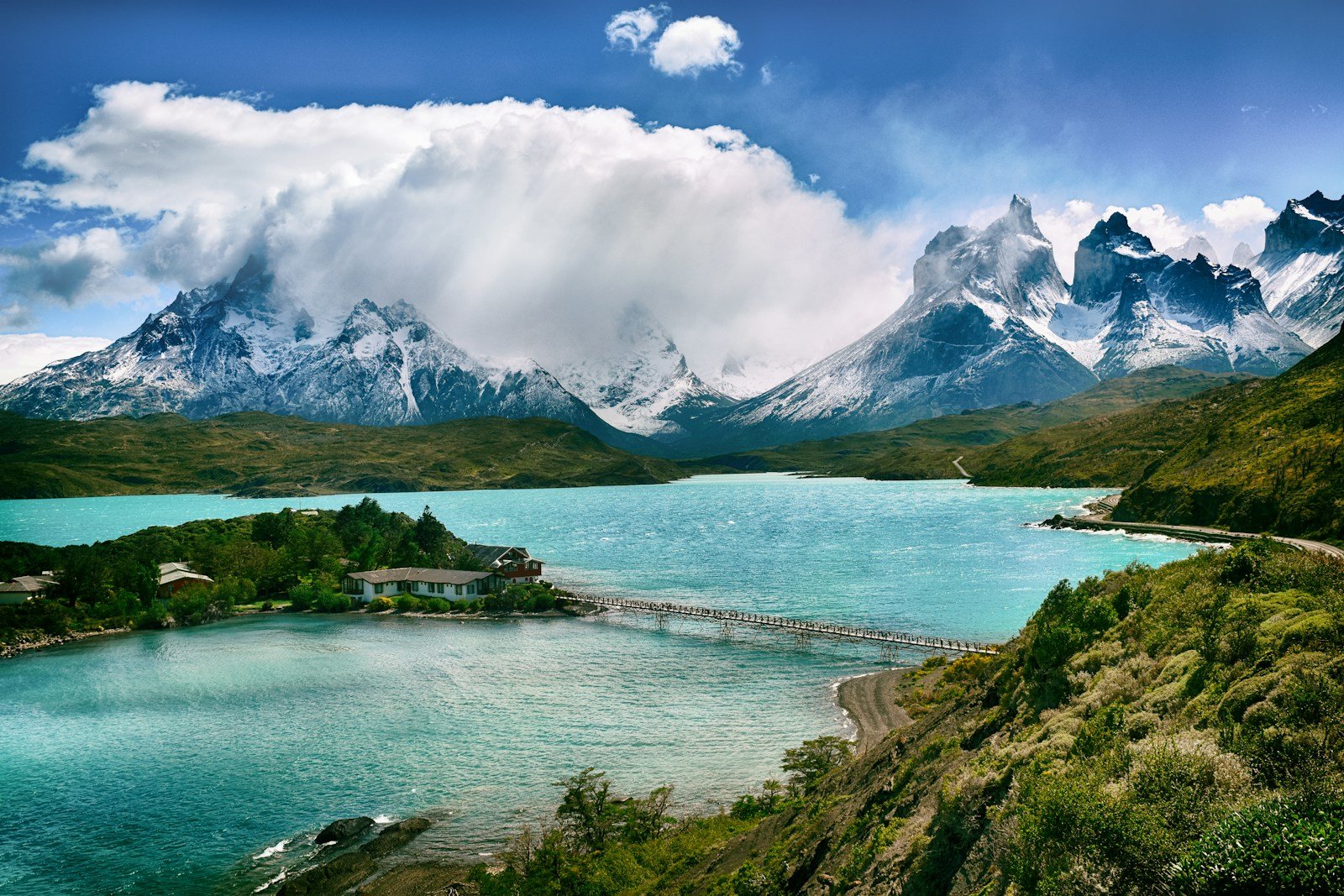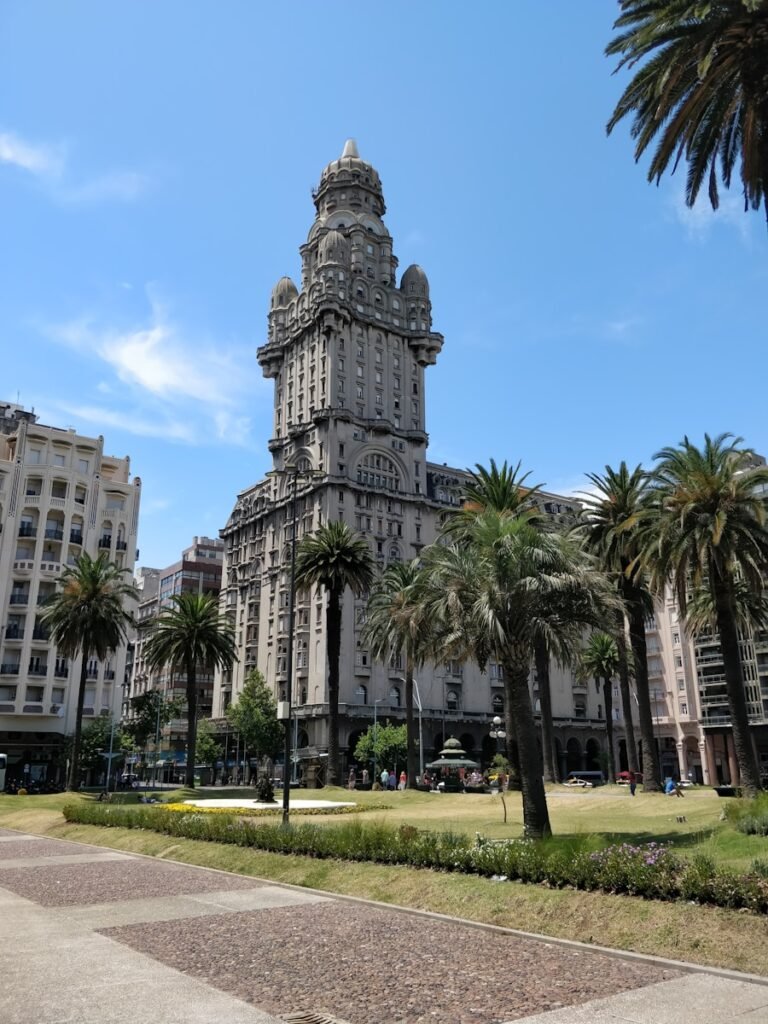Chile Digital Nomad Visa: Your Ultimate Guide to Remote Work in Chile
Thinking about working remotely from Chile? Whether you’re drawn to the vibrant city life of Santiago or the breathtaking landscapes of Patagonia, Chile offers an incredible backdrop for digital nomads.
While Chile doesn’t have a specific digital nomad visa, there are alternative visas that can make your dream of living and working here a reality. Let’s dive into the best visa options, eligibility requirements, and other important details you need to know before making the move!
Does Chile Have a Digital Nomad Visa?
As of now, Chile does not offer a specific digital nomad visa designed for remote workers. However, that doesn’t mean digital nomads and remote workers are out of options. There are several visa alternatives that allow foreign nationals to live and work remotely from Chile legally. These alternatives provide flexibility and, in some cases, temporary residency that can be extended if you decide to stay longer.
Chile is an attractive destination for digital nomads due to its modern infrastructure, affordable cost of living, reliable internet, and stunning landscapes ranging from the Atacama Desert to Patagonia. Whether you want to work from Santiago’s vibrant cafés, the coastal city of Valparaíso, or the serene Lake District, there are visa pathways that can make this possible.
Visa Options for Digital Nomads in Chile
1. Transitory Stay Visa (Tourist Visa)
The easiest way for digital nomads to enter Chile is through a Transitory Stay Visa, commonly referred to as a tourist visa. While this visa is technically meant for tourism, many remote workers use it to live and work remotely from Chile for short periods.
- Duration: Allows an initial stay of up to 90 days, with the possibility of extending for another 90 days while in Chile.
- Who Can Apply? Citizens from many countries, including the U.S., Canada, Australia, and the EU, can enter Chile visa-free for 90 days. Others may need to apply in advance.
- Application Process: In most cases, you can apply online or at a Chilean consulate before arrival. If you are eligible for visa-free entry, you will receive a tourist entry stamp upon arrival.
- Can You Work Remotely? While the tourist visa does not officially allow employment in Chile, working remotely for a foreign company while staying in the country is generally tolerated.
2. Temporary Resident Visa
For digital nomads and remote workers looking for a longer stay, the Temporary Resident Visa is a great alternative. This visa allows you to stay in Chile legally for an extended period while working remotely for a company outside Chile.
- Duration: Grants residency for up to one year and is renewable for an additional year.
- Who Can Apply? This visa is ideal for freelancers, entrepreneurs, and remote workers who want to stay in Chile longer than a tourist visa allows.
- Key Requirements:
- Proof of Income: You must demonstrate a stable income, typically around $1,000 USD per month or at least $18,000 USD in savings.
- Clean Criminal Record: A police clearance certificate from your home country is required.
- Health Insurance: You must provide proof of health insurance that covers medical expenses in Chile.
- Proof of Accommodation: A lease agreement, hotel booking, or similar documentation is needed.
- Valid Passport: Your passport must be valid for the entire duration of your stay.
- Application Process: You can apply through the Chilean immigration website or at a Chilean consulate in your home country. Processing times vary but can take a few months, so it’s important to plan ahead.
Which Visa Is Best for Digital Nomads?
- If you plan to stay in Chile for only a few months, the tourist visa is the easiest and most straightforward option.
- If you want to stay for a year or more, the Temporary Resident Visa provides more stability and allows you to establish a legal presence in Chile.
While Chile does not yet have an official digital nomad visa like some other countries, these visa options still provide a legal pathway to living and working remotely in Chile. If you’re considering making Chile your next remote work destination, researching and applying for the right visa will help ensure a smooth stay.

Benefits of Living in Chile as a Digital Nomad
Chile is quickly becoming a favorite destination for digital nomads looking for affordability, adventure, and a high quality of life. Whether you’re drawn to its modern cities, stunning natural landscapes, or thriving expat community, Chile has a lot to offer remote workers looking for a comfortable and exciting place to live.
1. Low Cost of Living
One of the biggest advantages of living in Chile as a digital nomad is its affordable cost of living compared to many Western countries. While not as cheap as some other Latin American destinations, Chile still offers excellent value, especially outside the capital city.
- Housing Costs: Renting an apartment in Santiago, the capital, can range from $500 to $1,000 USD per month, depending on the neighborhood. In smaller cities like Valparaíso or Pucón, rent is often even cheaper.
- Food and Dining: Eating out is affordable, with a meal at a mid-range restaurant costing around $7 to $12 USD. Street food, especially empanadas and local seafood, is delicious and budget-friendly.
- Transportation: Chile has a reliable and cost-effective public transportation system. The Santiago Metro is modern and efficient, with fares costing about $1 USD per ride. Ride-sharing apps like Uber and Cabify are also available.
- Internet and Workspaces: High-speed internet is widely available, with coworking spaces offering affordable daily or monthly memberships, making it easy to stay productive.
For digital nomads earning in USD or other strong currencies, Chile offers a comfortable and financially manageable lifestyle, allowing you to enjoy more experiences without breaking the bank.
2. Thriving Digital Nomad Community
Chile is increasingly attracting remote workers, freelancers, and entrepreneurs who want a mix of urban convenience and natural beauty. The country’s biggest cities, especially Santiago, have growing digital nomad communities, making it easy to connect with like-minded professionals.
- Co-Working Spaces: Santiago is home to several modern coworking spaces, such as WeWork, Co-Work Latam, and Selina, where remote workers can network and collaborate.
- Networking Events: Regular meetups, startup incubators, and entrepreneur-focused events provide excellent opportunities to expand your professional network.
- Expat and Digital Nomad Groups: Online communities, such as Facebook groups and Meetup events, make it easy to find support, housing recommendations, and social activities.
Chile’s digital nomad scene may not be as developed as in Mexico City or Medellín, but it is growing rapidly, particularly among entrepreneurs and tech professionals.
3. Natural Beauty and Adventure
For those who love nature, adventure, and outdoor activities, Chile is one of the most exciting destinations in the world. The country’s incredible geography offers everything from deserts to glaciers, making it a perfect base for digital nomads who love to explore.
- Atacama Desert: The driest desert in the world, known for its surreal landscapes, geysers, and world-class stargazing.
- Patagonia: A paradise for hikers and outdoor enthusiasts, featuring breathtaking mountains, glaciers, and the famous Torres del Paine National Park.
- Beaches and Surfing: Coastal cities like Viña del Mar and Pichilemu are great for surfers, with consistent waves year-round.
- Wine Country: Chile is famous for its wine regions, such as the Colchagua Valley and Casablanca Valley, perfect for weekend getaways.
- Skiing and Snowboarding: If you visit in the winter, Chile’s Andes Mountains offer some of the best skiing and snowboarding in South America.
With such a diverse landscape, Chile allows digital nomads to balance work and adventure effortlessly, making every weekend an opportunity for a new experience.
4. Stable Economy and Modern Infrastructure
Chile is considered one of the most stable and developed countries in Latin America, offering digital nomads a sense of security and reliability.
- Strong Economy: Chile has a stable economy, low inflation, and a business-friendly environment, making it a great place for entrepreneurs and freelancers.
- Modern Amenities: Cities like Santiago have high-speed internet, efficient public transportation, international restaurants, and modern healthcare facilities, ensuring a high quality of life.
- Safety: Compared to many Latin American countries, Chile is relatively safe, with Santiago ranking as one of the safest major cities in the region.
5. Friendly Visa Policies for Digital Nomads
While Chile does not have a dedicated digital nomad visa, the country offers several visa options that allow remote workers to stay legally for an extended period.
- Tourist Visa: Many nationalities can stay visa-free for 90 days, with the option to extend for another 90 days.
- Temporary Resident Visa: Offers a 1-year renewable residence permit, perfect for digital nomads who want to stay longer.
Chile’s flexible visa options, combined with its affordable cost of living and fantastic work-life balance, make it an attractive destination for remote workers.
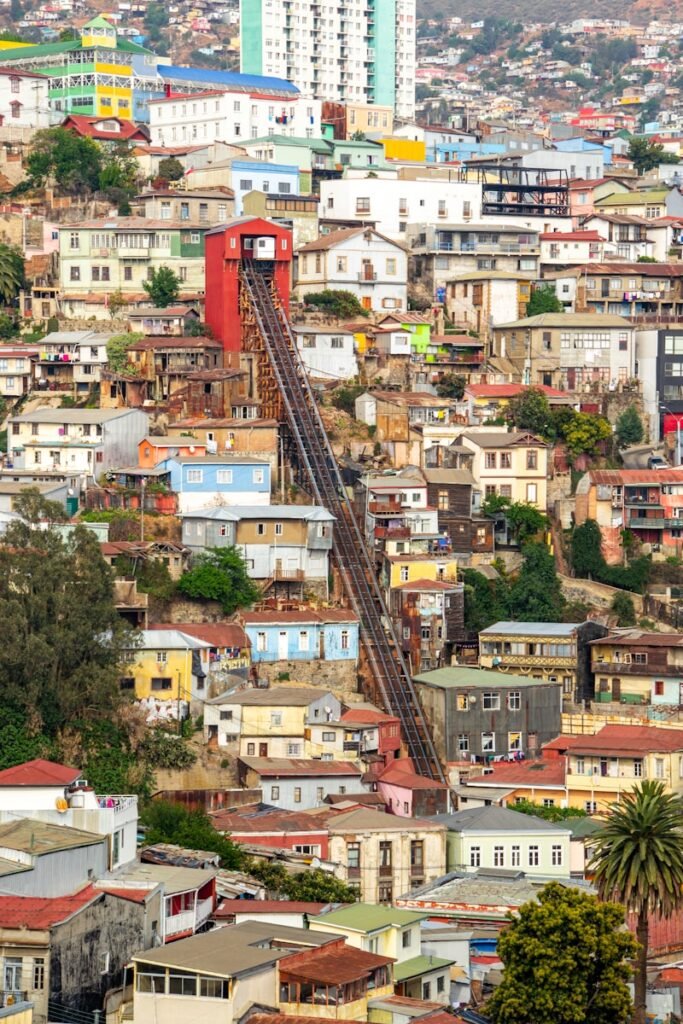
How to Apply for a Visa in Chile
Applying for a visa in Chile is a straightforward process, but it requires careful preparation to ensure everything goes smoothly. Whether you’re a digital nomad, freelancer, or remote worker, understanding the visa application process will help you transition seamlessly into life in Chile. Below is a step-by-step guide to help you navigate the application process.
Step 1: Choose the Right Visa Type
Chile does not currently offer a dedicated digital nomad visa, but there are two primary visa options that remote workers often use:
1. Transitory Stay Visa (Tourist Visa)
- Best for: Short-term stays and digital nomads who plan to stay less than 6 months.
- Duration: Allows an initial stay of up to 90 days, with the option to extend for another 90 days.
- Application Process: Many nationalities can enter Chile visa-free for 90 days, while others need to apply for a tourist visa in advance.
- Limitations: You cannot legally work for a Chilean employer, but you can work remotely for a company based outside of Chile.
2. Temporary Resident Visa
- Best for: Digital nomads who plan to stay longer than 6 months and want more stability.
- Duration: Grants temporary residency for up to one year, with the option to renew.
- Application Process: Requires proof of financial self-sufficiency, valid health insurance, and accommodation in Chile.
- Benefits: Temporary residents can apply for a RUT (Chilean tax ID), open a bank account, and enjoy more legal rights than tourists.
Step 2: Gather the Required Documents
To ensure a smooth application process, you’ll need to collect and prepare the following documents before submitting your visa application:
For the Transitory Stay Visa (Tourist Visa):
✅ Valid Passport – Must be valid for at least 6 months beyond your planned stay.
✅ Proof of Onward Travel – Some immigration officers may ask for proof of a return ticket.
✅ Financial Proof (Sometimes Required) – A bank statement or credit card showing you have enough funds for your stay.
✅ Visa Application Form (For Visa-Required Countries) – If your country requires a visa, fill out the online application form and submit it through the Chilean immigration website.
For the Temporary Resident Visa:
✅ Valid Passport – Must be valid for the entire duration of your stay.
✅ Proof of Income – Bank statements, freelance contracts, or employer letters showing a monthly income of at least $1,000 USD or $18,000 USD in savings.
✅ Clean Criminal Record – A police clearance certificate from your home country.
✅ Health Insurance – Must cover medical expenses in Chile.
✅ Proof of Accommodation – Lease agreement, hotel reservation, or letter from a host.
✅ Visa Application Form – Can be filled out online on Chile’s immigration portal or at a Chilean consulate.
Step 3: Submit Your Visa Application
Where to Apply?
You can apply for a Chilean visa either online or in person:
- Online: The easiest way is to apply through Extranjería Chile’s immigration website.
- Chilean Consulate: If you prefer, you can submit your application at the Chilean consulate in your home country.
Application Fees
- The visa fee varies depending on your nationality, but it typically ranges from $50 to $150 USD.
- Payments are made online or at the consulate when you submit your documents.
Step 4: Wait for Visa Approval
Processing Time:
- Tourist visa approvals can take a few days to a few weeks, depending on your nationality.
- Temporary Resident Visas may take up to 2-3 months for approval.
Tips to Avoid Delays:
✅ Apply well in advance of your planned arrival date.
✅ Make sure all documents are translated into Spanish (if required).
✅ Keep track of your application status via the Chile immigration website.
Step 5: Move to Chile and Settle In
Once your visa is approved, it’s time to start your digital nomad journey in Chile! Here’s what you should do upon arrival:
1. Register Your Visa (For Temporary Residents Only)
If you’ve obtained a Temporary Resident Visa, you must:
✅ Register with Chilean Immigration (PDI) – Within 30 days of arrival, visit the Departamento de Extranjería y Migración office.
✅ Apply for a RUT (Tax ID Number) – This is required if you plan to open a bank account or sign long-term leases.
2. Find a Place to Live
Many digital nomads choose to live in:
🏙 Santiago – Best for city life, coworking spaces, and fast internet.
🌊 Valparaíso & Viña del Mar – Ideal for beach lovers and a laid-back atmosphere.
🏔 Pucón & Patagonia – Great for outdoor lovers and nature enthusiasts.
3. Get Connected
📶 SIM Cards & Internet – Companies like Entel, Claro, and Movistar offer great prepaid SIM card options.
💻 Coworking Spaces – Join a space like WeWork, Co-Work Latam, or Selina to meet other digital nomads.
4. Explore and Enjoy Chile
Now that you’ve settled in, it’s time to explore! Whether you’re hiking in Patagonia, stargazing in Atacama, or enjoying wine tastings in Casablanca Valley, Chile offers endless adventures for digital nomads.

Cost of Living and Taxes in Chile
Chile is one of South America’s most developed economies, offering a high quality of life at a relatively affordable cost compared to many Western countries. Whether you choose to settle in Santiago’s bustling metropolis or the more laid-back coastal cities like Valparaíso, understanding housing costs, daily expenses, and tax obligations will help you budget effectively as a digital nomad.
Housing Costs in Chile
Accommodation expenses in Chile vary depending on the city, neighborhood, and type of housing you choose. Santiago, as the capital and economic hub, has the highest rental prices, while smaller towns and coastal cities offer more affordable options.
1. Santiago (The Capital City – Best for Digital Nomads Who Love City Life)
- One-bedroom apartment in the city center: $700–$1,200 per month
- One-bedroom apartment outside the city center: $500–$900 per month
- Shared apartment (coliving spaces or roommates): $300–$600 per month
2. Valparaíso & Viña del Mar (Coastal Cities – Best for a Relaxed Lifestyle)
- One-bedroom apartment in the city center: $500–$800 per month
- One-bedroom apartment outside the city center: $400–$700 per month
- Coliving or shared apartments: $250–$500 per month
3. Other Cities & Regions (Pucón, La Serena, Patagonia – Best for Nature Lovers)
- One-bedroom apartment in small towns: $300–$700 per month
- Renting a house in rural areas: $500–$1,000 per month
Utilities & Internet Costs
- Electricity, heating, cooling, water, and garbage: $80–$150 per month
- High-speed internet (100 Mbps or higher): $30–$60 per month
- Coworking space membership: $80–$250 per month (depending on the city and amenities)
📌 Tip: If you plan to stay long-term, consider negotiating rent or opting for furnished rentals to save money on furniture and appliances.
Daily Expenses in Chile
The cost of food, transportation, and other daily necessities in Chile is affordable compared to North America and Europe, but it can vary depending on your lifestyle and spending habits.
1. Food & Dining Costs
🍽 Groceries (for one person per month): $200–$400
- Milk (1L): $1.50
- Eggs (12): $3
- Chicken (1 kg): $5–$7
- Local fruits & vegetables: $1–$3 per kg
- Bread (fresh, 500g): $2
🥡 Eating Out:
- Inexpensive restaurant meal: $7–$12
- Mid-range three-course meal for two: $30–$60
- Coffee at a café: $2–$5
- Fast food meal (McDonald’s, local fast food): $6–$10
📌 Tip: Cooking at home will significantly reduce your expenses. Chilean markets and supermarkets like Lider, Jumbo, and Unimarc offer fresh and affordable groceries.
2. Transportation Costs
Chile has an efficient and affordable public transportation system, especially in larger cities.
🚌 Public Transport (Metro, Bus, Collectivos)
- Monthly metro/bus pass: $50–$70
- Single metro ticket (Santiago): $0.90–$1.30
- Collectivos (shared taxis): $2–$5 per ride
🚕 Taxis & Rideshares
- Uber/Bolt fare (short ride in the city): $3–$8
- Taxi start fare: $1.50–$2.50
- 10 km ride: $10–$15
🚗 Car Rentals & Gasoline
- Renting a car: $500–$800 per month
- Gasoline (per liter): $1.50–$2
🚲 Biking & Walking
- Many cities, including Santiago and Valparaíso, are bike-friendly, and some areas have rental bike services.
- Walking is a great way to explore cities and save on daily expenses.
📌 Tip: Digital nomads staying for several months may find biking and public transport to be the most cost-effective ways to get around.
Tax Obligations for Digital Nomads in Chile
One of the biggest advantages of living in Chile as a digital nomad is its favorable tax policy for foreigners.
Do Digital Nomads Have to Pay Taxes in Chile?
Chile follows a residency-based tax system, which means that:
1️⃣ If you stay in Chile for less than 183 days per calendar year, you are not considered a tax resident and do not have to pay income tax on foreign earnings.
2️⃣ If you stay in Chile for more than 183 days (in a 12-month period), you may become tax-resident and might be liable to pay income tax on worldwide earnings after your first three years in the country.
How Much is Income Tax in Chile?
If you do become a tax resident, Chile applies a progressive income tax rate ranging from 0% to 40% depending on your income level.
📌 Example Tax Brackets for Residents:
- Income below $10,000 USD per year → 0% tax
- Income between $10,000 – $25,000 USD per year → 4%–10% tax
- Income above $100,000 USD per year → 35%–40% tax
Do You Need to Register for Taxes?
- If you stay less than 183 days, you don’t need to register for taxes.
- If you stay longer and become a tax resident, you need to register with the Chilean tax authority (SII) and may need to declare your foreign income.
📌 Tip: Many digital nomads stay under 183 days per year to avoid tax residency. If you plan to stay longer, consider talking to a tax professional to optimize your tax situation.

Pros and Cons of Being a Digital Nomad in Chile
1. Diverse Landscapes for Weekend Adventures 🏔️🌊🏜️
One of Chile’s biggest draws is its breathtaking natural beauty, offering endless opportunities for exploration and adventure.
- Patagonia – Trek through the world-famous Torres del Paine National Park.
- Atacama Desert – Visit the driest desert on Earth, known for stargazing, geysers, and salt flats.
- Easter Island – A remote paradise with the iconic Moai statues and stunning beaches.
- Chilean Wine Country – Sample world-class wines in Valle de Colchagua or Valle de Casablanca.
- Surfing and Beaches – Ride the waves in Pichilemu, one of South America’s top surf spots.
📌 Tip: With Chile’s long and narrow geography, you can go skiing in the Andes in the morning and hit the beach in the afternoon!
2. Affordable Cost of Living Compared to Western Countries 💰
While not the cheapest country in South America, Chile offers a significantly lower cost of living compared to North America and Western Europe.
- Rent: One-bedroom apartments range from $400–$1,200 per month, depending on the city.
- Food: Groceries and local markets offer fresh produce at reasonable prices ($200–$400 per month).
- Transport: Public transport is efficient and cheap ($50–$70 per month for metro/bus passes).
For digital nomads earning in USD or Euros, Chile can be an affordable and comfortable place to live.
📌 Tip: Avoid imported goods and eat local food to keep your expenses lower.
3. Growing Digital Nomad Community & Coworking Spaces 💻☕
Chile’s startup ecosystem is booming, and cities like Santiago, Valparaíso, and Viña del Mar are becoming digital nomad hotspots.
- Coworking spaces – Options like WeWork Santiago, Impact Hub, and Selina Co-Work offer reliable work environments.
- Networking events – Meet fellow expats and entrepreneurs through Meetup groups and startup events.
- Coliving spaces – More hostels and apartments are catering to remote workers, offering high-speed WiFi and community vibes.
📌 Tip: Santiago’s Las Condes and Providencia neighborhoods are home to many digital nomads and coworking spaces.
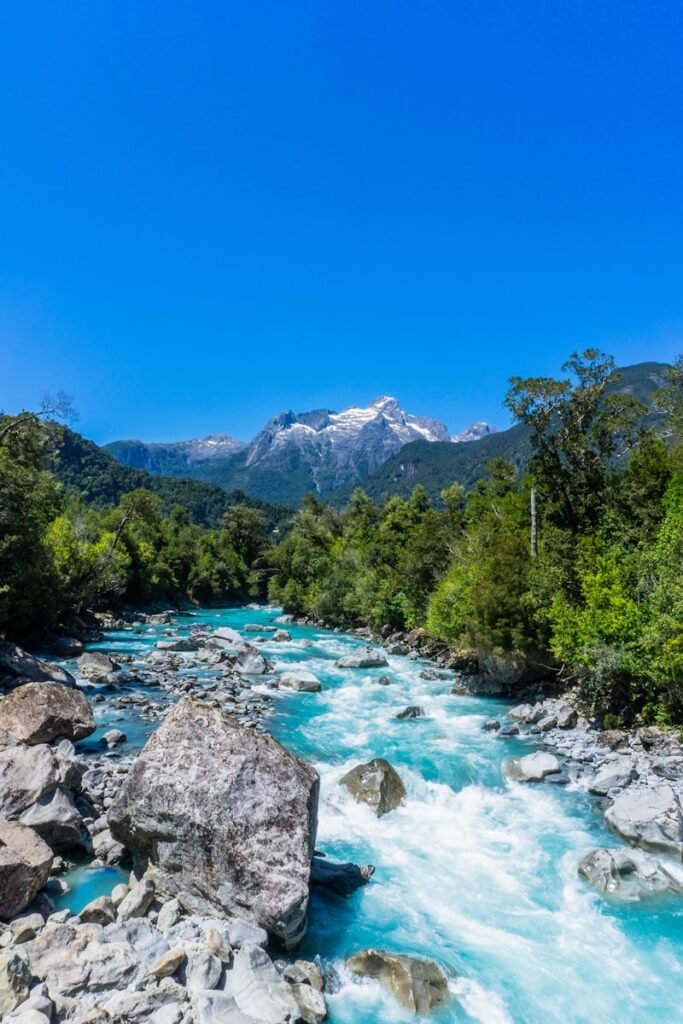
4. Strong Economy & Good Infrastructure 🏙️
Chile has one of South America’s most stable economies, making it a safe and reliable place to work remotely.
- Fast & modern banking system – International payments and online banking are efficient.
- Reliable transportation – Santiago’s metro system is one of the best in Latin America.
- Healthcare system – Chile offers high-quality medical care, and private health insurance is affordable.
📌 Tip: If you need reliable internet for work, stay in major cities, where fiber-optic connections are more common.
5. Safety & Political Stability 🔒
Compared to many South American countries, Chile is one of the safest places to live.
- Low crime rates in major cities (especially compared to Brazil or Argentina).
- Political stability and strong institutions make Chile a secure place for long-term stays.
📌 Tip: As in any country, avoid sketchy neighborhoods and be mindful of petty theft in crowded areas.
❌ Cons of Being a Digital Nomad in Chile
1. No Dedicated Digital Nomad Visa 🛂
Unlike countries such as Portugal, Mexico, or Thailand, Chile does not yet offer a specific digital nomad visa.
- Most digital nomads enter on a 90-day tourist visa, which can be extended for another 90 days.
- Long-term stay options require applying for a temporary residence visa.
📌 Tip: If you plan to stay long-term, you may need to do visa runs or apply for temporary residency.
2. Language Barrier – Basic Spanish is Often Needed 🗣️
While you can get by with English in some parts of Santiago, Spanish is essential for daily life.
- Outside major cities, English speakers are rare.
- Understanding Chilean Spanish can be difficult due to fast speech and slang.
- Government documents, rental contracts, and official paperwork are mostly in Spanish.
📌 Tip: Learning basic Spanish will make life much easier—apps like Duolingo, Babbel, or iTalki can help.
3. Internet Quality Varies in Rural Areas 🌐📉
Chile’s internet speed is reliable in big cities, but rural areas can be hit-or-miss.
- Santiago, Valparaíso, and Viña del Mar have fiber-optic connections with speeds of 100–500 Mbps.
- Small towns and Patagonia may have slow or unstable internet.
- Mobile data is decent, but remote areas can have limited 4G/5G coverage.
📌 Tip: Before booking an Airbnb or hotel, ask for an internet speed test (you can use Speedtest.net).
4. High Cost of Imported Goods & Electronics 📦💸
Due to high import taxes, certain goods can be expensive in Chile.
- Laptops, smartphones, and tech gadgets often cost 20–30% more than in the U.S.
- Imported food and luxury brands are overpriced.
- Furniture and home appliances are not as cheap as in other Latin American countries.
📌 Tip: Bring your electronics from home and buy local products instead of imported brands.
5. Bureaucracy Can Be Slow & Frustrating 🏛️
While Chile has a relatively efficient government, paperwork and bureaucracy can still be time-consuming.
- Setting up a bank account may require multiple visits and a Chilean RUT number (tax ID).
- Visa applications and residency permits can be slow and require patience.
- Registering a business involves several steps and documentation.
📌 Tip: If dealing with immigration, banking, or legal matters, consider hiring a gestor (local fixer) or lawyer to speed up the process.
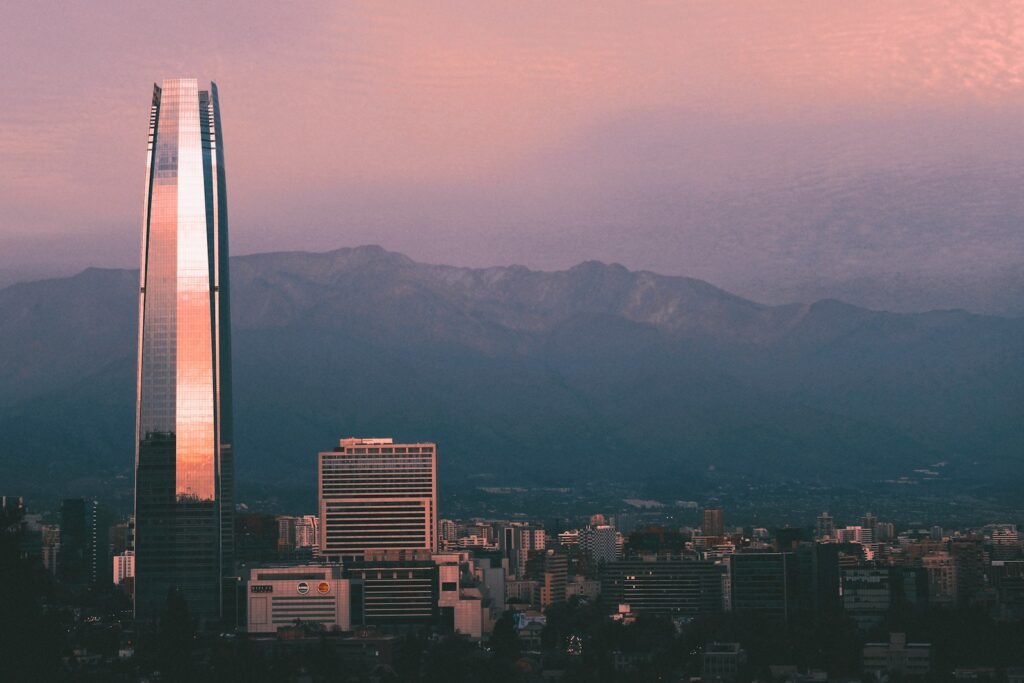
Conclusion: Is Chile the Right Fit for Your Digital Nomad Journey?
Chile may not offer a dedicated digital nomad visa, but that doesn’t mean it isn’t a fantastic destination for remote workers. With its flexible visa options, affordable cost of living, modern infrastructure, and breathtaking natural beauty, Chile has a lot to offer to freelancers, entrepreneurs, and remote employees looking for a dynamic and exciting place to live and work.
✔️ Why You Should Consider Chile as a Digital Nomad
If you thrive on adventure, culture, and affordability, Chile checks many of the boxes for an ideal remote work base:
✅ Diverse Landscapes & Outdoor Adventures – From the Atacama Desert to Patagonia, there’s no shortage of weekend getaways and bucket-list experiences.
✅ Affordable Living Costs – Chile offers modern city amenities at a fraction of the cost of North America and Europe.
✅ Strong Infrastructure & Safety – Reliable internet, great public transport, and good healthcare make Chile a comfortable place to live.
✅ Thriving Digital Nomad & Startup Scene – With a growing number of coworking spaces and an active expat community, you won’t feel alone.
✅ Simple Visa Options – Even without a digital nomad visa, 90-day tourist visas with extensions provide flexibility for short-term stays.
❌ Challenges to Keep in Mind
While Chile has many advantages, it’s not without its drawbacks:
❌ No Dedicated Digital Nomad Visa – Unlike countries like Spain, Portugal, or Mexico, Chile does not yet have a visa specifically designed for remote workers.
❌ Language Barrier – Basic Spanish is often necessary, especially outside of Santiago.
❌ Internet Quality in Remote Areas – While big cities have reliable high-speed internet, rural areas can be less consistent.
❌ Bureaucracy Can Be Slow – Opening a bank account, applying for visas, and dealing with government paperwork can take time.
Final Verdict: Is Chile Right for You?
If you’re looking for a vibrant country with stunning landscapes, a reasonable cost of living, and a stable economy, Chile can be an excellent choice. It’s particularly well-suited for adventurous nomads who love the outdoors and don’t mind learning some Spanish.
While the lack of a dedicated digital nomad visa may require some extra planning, Chile’s existing visa options provide enough flexibility for remote workers looking for a temporary or long-term stay.
So, is Chile your next digital nomad destination? 🌍💻 If you’re ready for a mix of city life, outdoor adventure, and a growing community of remote workers, Chile might just be the perfect spot for your next chapter!
Loved my tips for living in Chile as a nomad? You’ll find similar insights in my Panama Digital Nomad Visa post.

